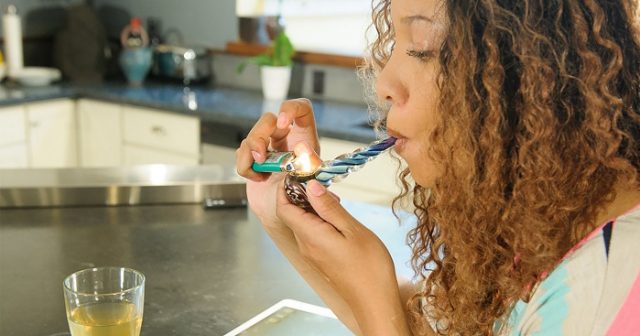There are studies that have shown that marijuana can be quite effective against anxiety. But studies have also shown that anxiety is a common side effect of marijuana. So which theory is right and which is wrong?
When it comes to marijuana and anxiety, a lot of factors come into play. Some of them include drug tolerance, strain composition, environmental factors, and pre-existing conditions. All of these factors come together to decide whether you'll feel panicky or relaxed after you have consumed marijuana. Let's dive a little deeper into this topic so as to be able to answer the question we have above.
What is Anxiety?
Anxiety is a feeling of worry, unease, or concern. It's usually associated with a situation or an upcoming event full of uncertainty. It can either be a motivator, allowing you to take some specific steps like reading for an exam, or a useful warning, making you bring your guard up in a dangerous or cautious situation.
People with anxiety disorders tend to experience it in their everyday life. They will feel anxious to the point that it will start affecting their relationships, work, and overall well-being.
There are different types of anxiety disorders. Some of them include post-traumatic stress disorder, commonly known as PTSD, social anxiety, obsessive compulsive disorder, panic disorder, and generalized anxiety. While each of these disorders might come with some slightly different symptoms, their symptoms can be debilitating nonetheless. There are factors that determine and increase one's risk of suffering from anxiety, including personality, genetics, and gender (females experience anxiety more).
Can Marijuana Help with Anxiety?
The answer is yes.
One of the major reasons why marijuana is being used medically is because of the effects it has on anxiety. In fact, scientists are beginning to discover some evidences that might prove that marijuana is a very good treatment for anxiety disorders.
There are a lot of reports from long-time users of marijuana that have cited that the drug has a relaxing, calming, and even hypnotic effect on people. Users have even claimed that the drug enhances relaxations, stress relief, and reduces anxiety.
A 2014 study carried out at the Vanderbilt University discovered that smoking cannabis can increase the presence of endocannabinoids, which are naturally-occurring brain chemicals that are reduced when a person experiences chronic stress. There are researchers that are of the notion that the reduction in endocannabinoids could be the major reason why anxiety disorders are experienced.
Can Marijuana Cause Anxiety?
The answer is unsure.
When taken in large doses, marijuana can cause paranoia or short-term anxiety. If you are a newbie to smoking marijuana, you have a great chance of feeling anxious once you finish smoking. Additionally, if you are in a stressful or strange environment, you can suffer from anxiety even if you are used to smoking marijuana.
There's also a chance that you'll suffer from acute anxiety if you suddenly stop using cannabis. While anxiety can be the major factor that’s deterring some people from taking marijuana, it has not been scientifically proven that marijuana is a risk factor when it comes to the development of anxiety. This simply means that the relationship between marijuana and anxiety is still unclear. Scientists are not sure whether people with anxiety turn to the drug in order to escape their pre-existing symptoms, or the increased anxiety in user is as a result of the drug's use.
Conclusion
Although a lot of users claim to have experienced anxiety from taking marijuana, the drug can also be an effective treatment against anxiety disorders. Although scientists are still unsure of the relationship between the drug and anxiety, there are a lot of factors that could contribute to this drama. Dosing and paying attention to strain composition can help you reduce acute anxiety in a significant manner.
This article is provided by Revolutionary Clinics, a medical marijuana dispensary located in Boston, MA. Contact us on Facebook today to learn more about the relationship MMJ has on different medical conditions and disorders.






































